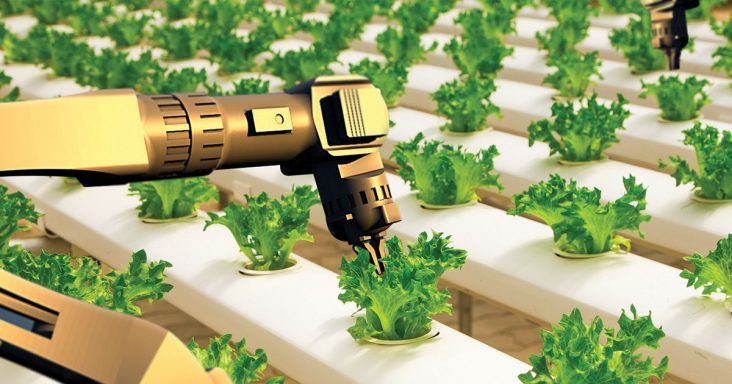NSF awards $750,000 to UA Institute for Integrative and Innovative Research
by January 14, 2023 9:00 am 877 views

The National Science Foundation has awarded a nearly $750,000 grant to the University of Arkansas’ Institute for Integrative and Innovative Research. The institute, referred to as I³R, is a cross-disciplinary team of consultants, startup companies and university researchers, including those with the University of Arkansas System Division of Agriculture.
The National Science Foundation Convergence Accelerator grant will fund a project designed to connect regional farmers with institutional buyers and ultimately expand access to healthy and nutritious food.
The project, “Data-driven Agriculture to Bridge Small Farms to Regional Food Supply Chains,” brings Division of Agriculture researchers together with colleagues from the University of Arkansas, University of Arkansas at Pine Bluff and University of Florida. The team also includes two startups, Cureate and Junction AI Inc., as well as several consultants. The project’s stated goal is to tackle challenges such as food insecurity while offering novel business solutions.
NSF’s Convergence Accelerator was launched in 2019 to build upon basic research and accelerate solutions toward societal impact through convergence — the integration of ideas and approaches across research sectors. I³R is one of 16 multidisciplinary teams awarded under the NSF Convergence Accelerator’s Track J: Food & Nutrition Security.
Meredith Adkins, director of the University of Arkansas’ NWA Industry and Community Engagement within the Division of Economic Development, said the project will help open markets and resources to both producers and consumers.
“We’re excited to bring this team of experts and innovators together to empower regional food producers with data insights that could enable access to new markets,” Adkins said. “By leveraging our collective expertise and engaging in an extensive planning and user discovery process to deeply understand the needs of producers, buyers and other stakeholders, we have the opportunity to make both a positive societal and economic impact, particularly here in Arkansas.”
Adkins will be transitioning from her current role within the university to become an assistant research professor at I³R.
The overall objective of this project is to empower regional food producers to understand the economic value of specialty crop assortment and food animals on their farms in comparison to market demand for institutional sales and intervening factors such as food safety considerations.
The project team ultimately will create a scalable technology platform that provides market insights to small farmers via the convergence of multiple scientific research fields and modern technological innovations such as robotics, artificial intelligence and machine learning.
Deacue Fields, University of Arkansas vice president for agriculture, said the project falls directly in line with much of the Division of Agriculture’s ongoing mission.
“It is encouraging to see this partnership with the Division of Agriculture, University of Arkansas and University of Arkansas Pine Bluff,” Fields said. “This project speaks to our mission of strengthening agriculture, communities and families.”
The project will engage students, including those underrepresented in fields such as food science and computer engineering, in convergence research and in human-centered design across the three Arkansas land-grant institutions.
The investigators will lead outreach with small farmers in Northwest Arkansas, as well as the underserved regions of the central Arkansas Delta and the Cherokee Nation in Oklahoma through the U of A School of Law’s Indigenous Food and Agriculture Initiative, a grant collaborator.
Erin Parker, executive director of the Indigenous Food and Agriculture Initiative, said the project will help work to make meeting food production and availability needs on tribal lands a more regularly considered part of the overall market equation.
“IFAI is excited to collaborate on this cross-disciplinary effort to support our region’s Indigenous food producers,” Parker said. “Supporting economic development through tribally-led agricultural investment in Indian Country is a key part of our mission, and we look forward to the opportunities this work will open up for Tribal producers.”
The $743,651 grant will support market research, hiring of graduate assistants, development of the technology platform and other initiatives.
